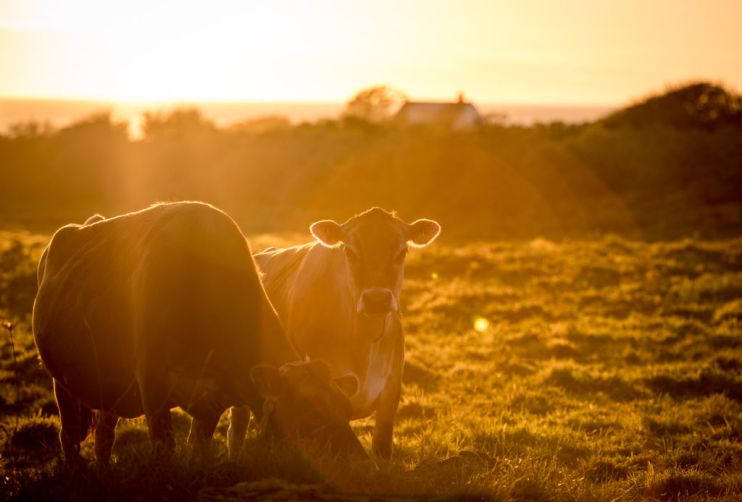British agriculture won’t survive any more wind changes from Westminster

It is still 2022, we’ve got a third new prime minister, but there’s still no end to the economic chaos or U-turns in Westminster. It’s no wonder individuals and industries are impacted. Above all, there’s one common denominator when so many governments replace each other: uncertainty.
Rishi Sunak initially signalled he wouldn’t be attending the climate summit in Egypt, Cop27, instead preferring to focus on domestic issues. But lo and behold, after significant pressure, the new PM is now in Sharm-El-Sheikh meeting with world leaders.
No sector is more affected by uncertainty than agriculture. For farmers, nothing is ever left to fate: they have to plan in advance for the next season, the next harvest, the next load of produce. Under Boris Johnson, they were nudged to more sustainable forms of production, with a focus on decreasing emissions and protecting the environment. Liz Truss was in place for such a short period that her plans for the farming sector never even had the time to fully emerge. Now, we still have to wait and see what Sunak chooses to prioritise.
One of the key tenets of a focus on sustainability was the Elms scheme, six years in the making, originally devised by Michael Gove when he was environment secretary, and yet to be fully launched. Under the scheme, farmers would get “public money for public goods” if they adopted sustainable practices and enhanced the environment around their communities.
When Liz Truss’ government came into power, they decided to launch a review of the scheme, sparking confusion amongst farmers – as some of them had been preparing for it for a long time. Several agricultural and wildlife protection organisations strongly came out against the review. A government spokesperson for Defra insisted that “claims we intend to go back on our commitment to the environment are simply not right”. But many farmers were not convinced.
While acknowledging that not everything had gone completely smoothly in the making of the scheme, Jimmy Woodrow, executive director of Pasture for Life, says that “Elms was certainly a massive step in the right direction”. Woodrow’s non-profit educates farmers on the benefits of feeding their animals on pasture – a practice that reduces emissions and improves the quality of the meat we eat. He believes the current focus on food production without enough environmental security causes the very long-term challenges that Elms was meant to help solve.
But not everyone sees things the same in the farming world. When the Elms review was announced, the head of the National Farmers’ Union (NFU) Minette Batters described the decision as positive. Her intervention created even more confusion. Her vice president, David Exwood, clarified it. The Elms scheme has three elements: the sustainable farming incentive, the local nature recovery and the landscape recovery. Each element is meant to get a third of the allocated budget. The NFU believes 65 per cent of the budget should go to the sustainable farming incentive “because it’s the most important and most accessible”, says Exwood.
These disagreements play on broader culture war debates: the growth vs anti-growth coalition, those who want to build – whether it’s homes or solar plants – and those who oppose development to protect the countryside view. But reading this story through such simplistic lenses would be wrong. The reality is that a lot of conventional farming destroys the very basis on which food is produced – soil. The UK is far from being self-sufficient in food production, still importing almost half of its food. In the Nature Recovery Green Paper, then environment secretary George Eustice acknowledged the UK is “one of the most nature depleted countries in the world”. So if farmers don’t preserve the soil we have left, we won’t have any fertile soil to farm on in the future – it’s as simple as that. Sustainable farming and nature recovery, if anything, could build consensus across the board – as it means reducing emissions, and ensuring food resilience in the long-term.
But goodwill and interests often collide. An insider described the NFU as a “political party with different wings”. There’s a younger faction that campaigns for the environment; a dinosaur-like faction that refuses to reform; and a third group with floating voters. The key to keeping the NFU together is winning those people in the middle, and this perhaps explains the Union’s more stringent focus on food production. But it hasn’t stopped some of its members from leaving, according to reports. Uncertainty only fosters these divisions.
To this day, no one knows when the results of the review will be published. Speculations had the date for the end of this month, but Defra has clarified it will be at some point later this year. But as the clock ticks on, farmers are left without a clear direction for the future of their industry. With no certainty at hand, food security looks like an achievement still far away.